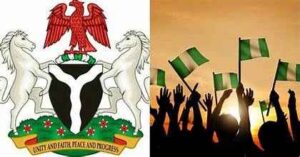Mr. Femi Gbajabiamila, the President’s Chief of Staff, has emphasized the critical need for a partnership among the government, private sector, and conscientious citizens to tackle the myriad challenges facing Nigeria, asserting that the government cannot address these issues in isolation.
Speaking at the National Economic Dialogue titled “Nigeria’s Economic Future: 25 Years of Democracy and Beyond” organized by the Nigerian Economic Summit Group (NESG) in Abuja on Wednesday, Gbajabiamila highlighted the significance of collective action in overcoming Nigeria’s socio-economic hurdles.
He pointed out the intrinsic link between democracy and economic stability, noting that Nigeria’s prosperity hinges on its democratic framework.
“The onus lies with the Federal, State, and Local Governments to discover and implement solutions to the pressing issues we face today. However, the government alone cannot shape a nation’s destiny. It takes a united front. We must persistently strive to address these challenges,” he remarked.
“For a sustainable economic future, our democracy must serve as the foundation. They are inextricably linked,” he added. “Nigeria is a shared responsibility. We must collaborate to build a legacy we can all take pride in.”
In his opening address, NESG Chairman Mr. Niyi Yusuf remarked on the notable changes Nigeria has undergone over the past 25 years of democratic governance, encompassing political, social, and economic dimensions.
Yusuf noted advancements in sectors like telecommunications, agriculture, and services, which reflect “our collective endeavor to diversify the economy and create opportunities for millions.”
However, he acknowledged enduring challenges stemming from inconsistent policies, governance shortcomings, and economic fragility. “Entrepreneurs and businesses are grappling with escalating operational costs, while citizens face a rising cost of living. Issues like poverty, unemployment, insecurity, and corruption continue to impede our progress,” he stated.
“The lessons from our struggles are evident: achieving sustainable economic growth transcends mere policy adjustments; it necessitates a unified approach to tackle the fundamental systemic challenges that have hindered us.”
Discussing the importance of the National Economic Dialogue, he stated, “This forum allows us to reflect on our economic history, celebrate our achievements, critically assess our failures, and understand how policy inconsistencies have impacted our development.”
“We need to question ourselves: How do we safeguard and expand upon our successes? How can we build robust institutions and ensure policy consistency that fosters long-term economic growth?”

To forge a thriving socio-economic future, Yusuf urged Nigerians to adopt collaboration as a core principle. “The complexities of our challenges demand a joint effort from public and private sectors, civil society, and international allies. We must cultivate an environment that encourages innovation, supports entrepreneurship, and attracts investment,” he articulated.
“This spirit of collaboration must resonate across all levels of government and throughout society. When charting our economic path, we must prioritize economic diversification, human capital development, security, infrastructure enhancement, good governance, transparency, and inclusive growth.”



